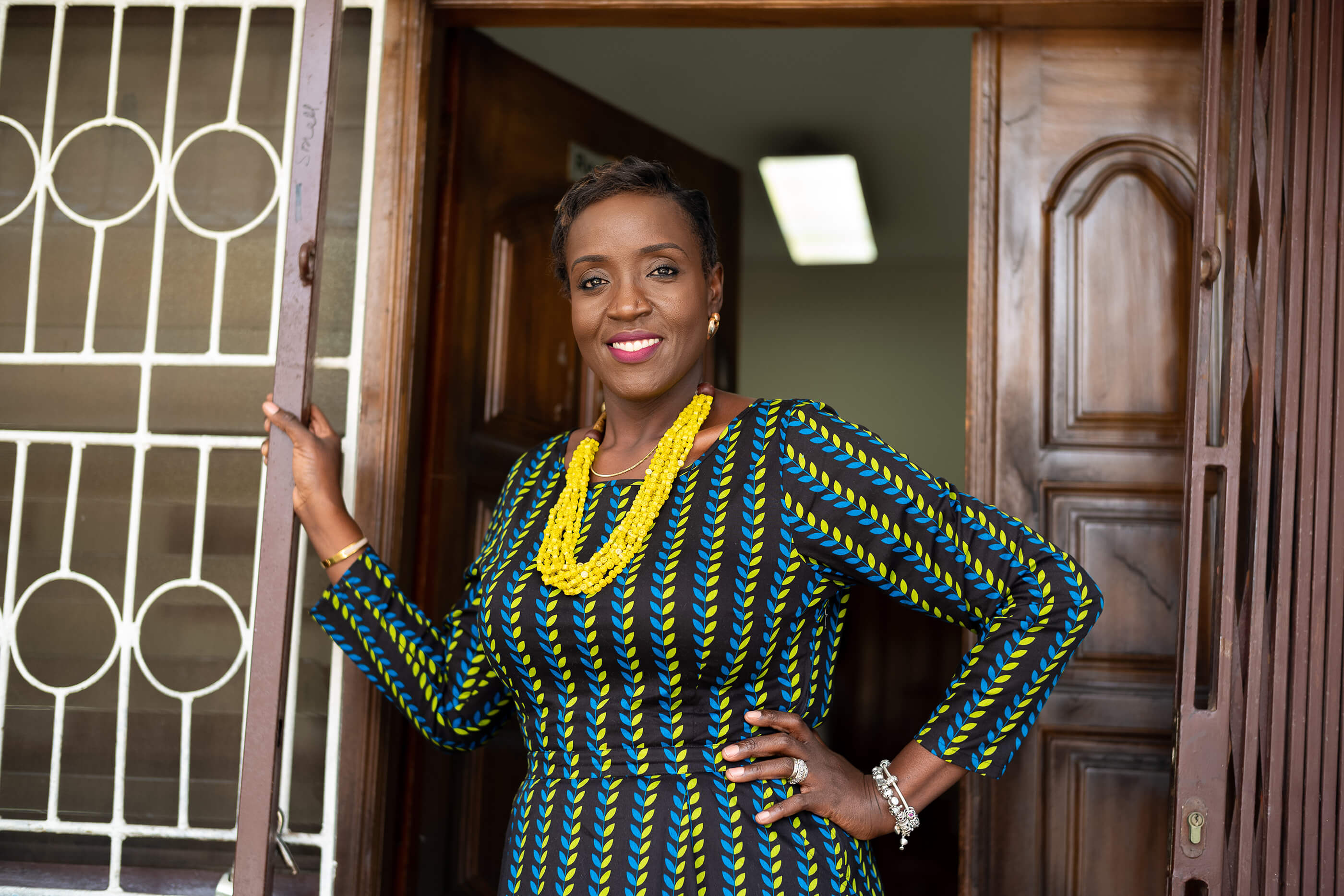Seed Spark Ignites in South Asia
Stanford Seed’s new online program collaborates with incubators to help early-stage entrepreneurs — and their businesses, shine more brightly.
October 07, 2021

India-based entrepreneur Anirban Palit had a problem. The startup he cofounded, Pragmatech Healthcare Solutions, produces kits women can use to screen for cervical cancer at home, a potential game-changer in a country where 60,000 women lose their lives to the disease each year, in part due to low acceptance rates among women of life-saving pelvic exams and PAP tests. As the product underwent clinical evaluations, however, Palit worried about taking his fledgling company to the next level.
“I have experience working within a corporation, but that’s entirely different than working with a startup,” he says. “The most important success metric for us will be the ability to scale robustly. When you’re in a startup, however, there are few people to help you with that.”
Today, Palit is confidently navigating those concerns after successfully completing Seed Spark, a new 16-week online entrepreneurship program designed in collaboration with faculty at Stanford Graduate School of Business. The program is offered through Stanford Seed, a philanthropic institute based at Stanford GSB whose mission is to partner with entrepreneurs in emerging markets to build thriving enterprises that transform lives. By collaborating with a wide range of business incubators and other entrepreneurial support organizations, Stanford Seed is able to engage with early-stage entrepreneurs like Palit to build their strategy, grow their network and, ultimately, boost their business.
“The Spark program offers the right blend of hands-on practical tools, networking and mentoring opportunities in a span of four months,” says Dinesh Kumar, Stanford Seed’s blended learning program manager, who leads the Seed Spark entrepreneurship program in South Asia. “An aspiring entrepreneur can take what they learn and immediately apply it to their startup. They’re able to share what they learn with their team, and engage with like-minded peers in their cohort, all while receiving targeted and structured mentoring support.”
Bridging the Gap
The inaugural cohort of Spark, which included 86 startups from across India nominated by seven collaborating organizations, completed the program and received their certificates in August. Each entrepreneur engaged in practical activities introduced by online learning materials, live video conference sessions with business experts, ongoing one-on-one mentoring, and regular interaction with fellow cohort members. Participants spend five to eight hours weekly on the program. Spark culminates with a pitch competition with a cash prize that challenges participants to create a three-minute pitch video presentation about their business.
“Spark, with the backing of Seed and Stanford Graduate School of Business, supplements the learning content provided by incubators to their entrepreneurs. Spark delivers a tried and tested curriculum and toolkits that entrepreneurs can use immediately to identify customer needs, test their prototypes, identify partners and markets that make up their value chain, review their pricing and business model, and to communicate their story to the world.” Kumar says.
The program’s carefully structured approach is one of the program’s strengths, says Priyadarshini Krishnan, senior operations manager at TiE Chennai, one of Spark’s collaborators.
“Spark enables us to bridge the gap between what our members want and what we’re already offering,” she says. “When a venture is in the early stage, entrepreneurs have a lot of ideas and have to make the right decisions to move forward successfully. Spark works within a time frame to channel those ideas and create a step-by-step process that helps entrepreneurs focus on one thing, then move to the next level. It’s a well-thought-out program and the startups commit to doing it.”
Mentors, Networking, and Connection
Palit was nominated for Spark by technology incubator Venture Center, based in the state of Maharashtra. During his time in the program, he attended live online sessions with industry leaders from different domains, and established close ties with his peer “huddle group,” which included a hydroponic grower and a tofu manufacturer, also in the Spark cohort.

Venture Center is based in Pune, India.
“Our huddle groups were comprised of fellow early-stage entrepreneurs, all sailing in the same boat with the same questions and similar problems. We were able to share experiences, and it was valuable to have those different perspectives,” he says.
That connection became critical in spring of 2020 when Covid-19 shut down opportunities for in-person engagement, Palit says.
“I started my entrepreneurial journey in October of 2019; I’d just taken the plunge when lightning struck, in the form of Covid,” he says. “We were fighting a lonely battle. Then here comes a program where I could at least virtually meet people who were in a similar situation. We were able to connect not just through assignments but also in a personal way.”
Most valuable of all for Palit was the opportunity to work one-on-one with a mentor who provided ongoing encouragement throughout the program, he says.
“The most exciting part of Spark for me was mentor support,” Palit says. “Having a renowned doctor as my mentor who would coach me in the minutest possible details about my startup is more than I ever could have asked for.”
For those mentors, Spark provides a unique opportunity to share their entrepreneurial experience and expertise.
“This program is so valuable for startup founders,” says P N Subramanian, a mentor from TiE Chennai. “Experienced mentors are able to provide fantastic value-add for the mentees, and the kind of support they likely wouldn’t have been able to get without Spark.”
The mentoring experience was personally rewarding for Abhimanyu Bhosale, a mentor from the Seed Transformation Network.

Anirban Palit, cofounder of Pragmatech Healthcare Solutions, won Seed Spark’s inaugural pitch competition.
“I could apply a lot of the things I learned from my experience and share it with mentees,” he says. “It also gave me a different perspective, and refreshed my memory of our initial days starting our own business. I loved it.”
As the program’s first cohort wrapped up, Palit participated in — and won — Spark’s pitch competition, which requires participants to create short video presentations that can be shown to investors. Contest runners-up were Sabarish Ramachandran, product manager at Health Sensei, which provides real-time intelligent health data monitoring of hospitalized and at-home patients; and Sudarsan M S, director of Prakriti, a flora-tech startup specializing in post-harvest preservation and quality control for flowers.
Expansion into South Asia, Africa
Spark’s second cohort is now underway, with inaugural participants from Pakistan and Bangladesh. Next, Seed is planning to introduce Spark in Africa.
The collaborations between Spark and organizations such as TiE Chennai are highly effective and exciting, says Krishnan.
“Because this program is online, we are able to reach out to our members across the country, and we continue to get amazing feedback from participants,” she says. “Our goal is to support the startup ecosystem, and this collaboration helps Spark — and us — reach a lot more entrepreneurs. It’s made us stronger and better able to do what we do. It’s a beautiful win-win situation.”
Recruitment for Spark is conducted by collaborating incubators and entrepreneurial support organizations and not directly through Stanford Seed. If you’d like to participate in the program, please reach out to the collaborating organizations below. You can also sign up for our mailing list to receive information about programs for leaders of early-stage companies.


